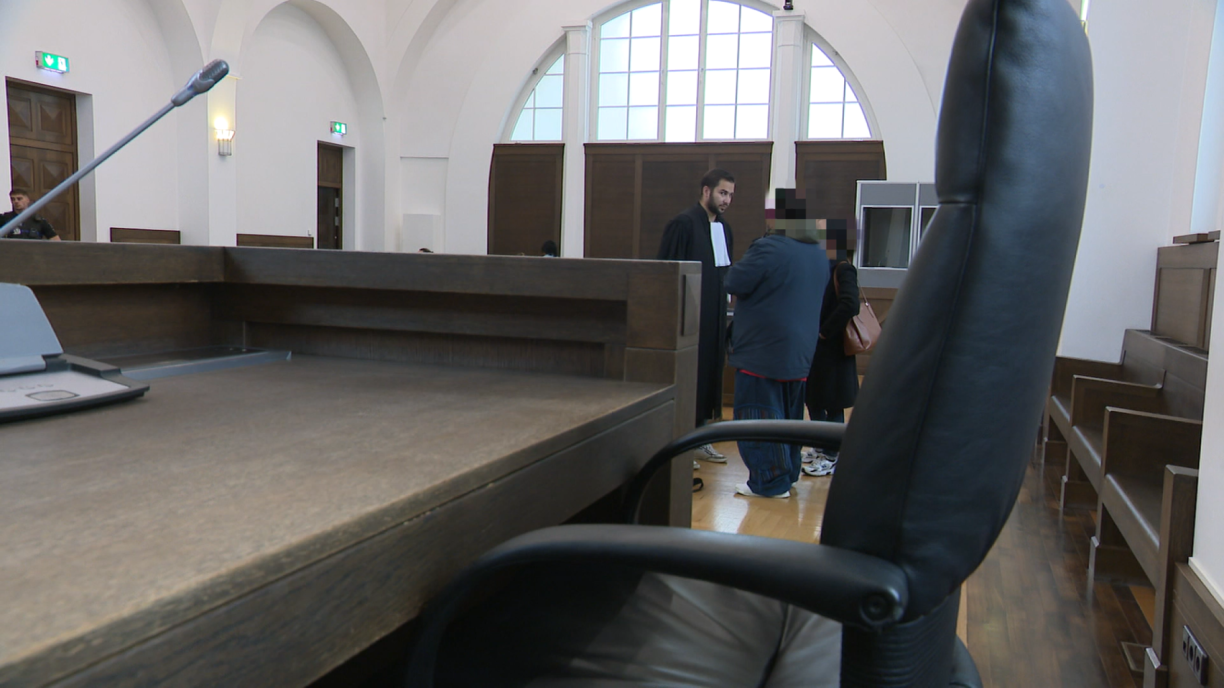
“I saw no injuries. Some employees worked here for a couple of years but then returned to Nepal, where there are many mountains and thorns. Maybe the scars are from that,” said the former restaurant owner, Mr. R., in court.
Mr. R. and his wife are accused of abuse and human trafficking. “I never hit them,” he repeated several times in response to questions from the court. The defendant insisted that the employees’ accusations are part of a larger conspiracy orchestrated by rival restaurant owners.
He claimed that after he and his wife left, his employees celebrated and drank in the restaurant. “How could the restaurant have been running for so long if I was really so bad?” he asked.
Throughout the hearing, Mr. R. largely responded to questions by questioning the court. “I brought these people here so they could have a better life,” he said, adding that “my wife attended all parent-teacher evenings for [a former cook’s] children, which was never discussed beforehand.” His parents were seated at the back of the courtroom during the proceedings. The sitting judge then asked him how, in his view, these accusations constituted a conspiracy.
“Whoever is behind this wants to see my restaurant shut down,” the defendant claimed. He added that the Inspectorate of Labour and Mines (ITM) regularly inspected the restaurant, and asked why nothing suspicious had ever been found before.
Mr R continued that working hours were from 10am until 2pm, and later from 5pm until 11pm at the latest and he had respected all formal procedures necessary to bring the employees over from Nepal.
Confiscated credit cards: explanations fall apart
When questioned about why he had withdrawn €11,490 from an employee’s bank card, Mr. R’s explanations appeared inconsistent. Previously, he claimed to have only withdrawn €1,000. On Friday, he said he could not recall ever doing so. He and his wife added that the employee had received €17,000 from the defendant’s father as a loan to cover the cook’s father’s funeral costs, while the remaining €6,000 was a gift. Mr. R. also denied allegations that he withheld payment from staff to have them settle debts to him.
Explanations were similarly inconsistent regarding the former cook’s travel expenses to return to Nepal for the funeral. At times, Mr. R. said the costs were covered by his father, at other times he claimed he had split the cost with the employee, or that the employee had paid the expenses himself.
The couple also maintained that their previous admission of guilt during a meeting with the Nepalese community, along with a promise to pay reparations, had been made under pressure and threats that their restaurant would be forcibly closed.
Regarding the missing money that was reportedly deducted from staff salaries, Mr. R’s wife explained that the staff was never forced to return any funds to her husband. Instead, they were placed in a so-called “communal fund” intended to provide emergency support for employees. She was unable, however, to clarify the exact purpose or function of the fund.
At court, the defendant’s wife began her testimony by raising her voice and addressing the public. She said her reputation within the Nepalese community had been severely damaged, and that she could no longer live like this.
“I ask all of you, all our employees – yesterday we received calls from people saying it looks like the case has been won and that we should make a demonstration through the city in celebration. Please don’t do that. We are fighting this here, but we ask you not to cause us any further harm,” she said.
She denied all accusations against her husband, insisting she had never witnessed him hitting anyone and that he had never even been in the kitchen. She also noted that employees had two free days a week, in addition to Mondays when the restaurant was closed.
The court, however, challenged these claims: if the restaurant has been operating since 2008, why is there no employee willing to speak positively about her husband, despite risking 10 to 15 years in prison? The judge repeatedly asked why Mrs. R. was not defending herself more actively, given that all employees had stated that she never hit them. In fact, they claim that Mrs. R. had been a victim of her husband’s abuse herself.
“I have said everything there is to say about my husband. About myself, I don’t need to speak unless I am asked to,” she said.
Next week, Mr. R. will continue his testimony. In addition, the defence and co-accused will speak, and the public prosecutor will present the criminal charges. Human trafficking with violence carries a sentence of between 10 and 15 years in prison.